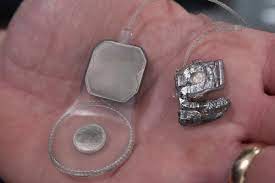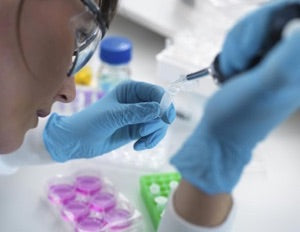News

cataract surgery
Lower dementia risk associated with cataract surgery
Researchers found that adults who have had cataract surgery had almost a 30% lower risk of developing dementia for at least 10 years after the operation when compared to those who did not have cata...

age-related macular degeneration
New bionic eye moving towards human trials
The latest hurdle that was jumped for the implantable device was the successful implantation in sheep.

age-related macular degeneration
New therapy being developed to help reverse vision loss
Researchers at the University of Toronto have developed a new technique of injecting healthy cells into eyes affected by vision loss due to age-related macular degeneration (AMD) or retinitis pigme...

cystitis
Drug used to treat interstitial cystitis increases risk of maculopathy
Researchers from the University of Alabama at Birmingham examined the link between PPS exposure and maculopathy.

age-related macular degeneration
Cell Transplants for Macular Degeneration
Currently, there are no FDA-approved treatments available to treat dry AMD. Lineage Cell Therapeutics is currently conducting a clinical trial on its newest cell transplant product developed to tre...

age-related macular degeneration
Failure of immune system linked to macular degeneration
Researchers from the Queen Mary University of London have found that age-related macular degeneration is potentially caused by the failure of at least one of five proteins to regulate the immune s...

child
Kids' vision worsens during COVID lockdown
Eye doctors have noted an increase in children requiring prescription eyeglasses and contact lenses for myopia (near-sightedness) since the 2020 pandemic began.

annual eye exams
It's not too late - May is Healthy Vision Month
The CDC along with the National Eye Institute, are encouraging Americans to have a comprehensive, dilated eye exam during the month of May in observation of Healthy Vision Month.

age-related macular degeneration
Uveitis and Scleritis patients more likely to develop age-related macular degeneration
Recent study findings support the current evidence that age-related macular degeneration (AMD) develops when abnormal inflammation is present in the eye.
